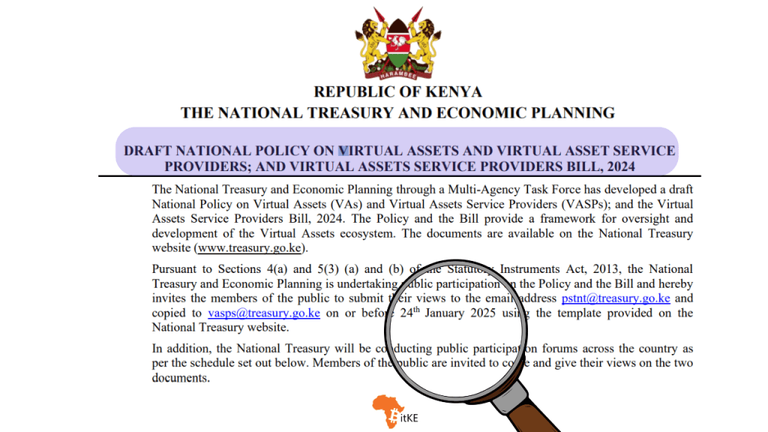
Kenya is preparing to introduce legislation to legalize cryptocurrencies, marking a significant turn in its financial policy. Treasury Cabinet Secretary John Mbadi announced the initiative, emphasizing the government’s commitment to establishing a regulatory framework for digital assets, which have operated unofficially in the country despite an existing ban.
Recognizing Cryptocurrency’s Potential Amid Risks
“Kenya’s financial sector is a beacon of innovation and growth in Africa,” Mbadi stated, highlighting the transformative impact of Virtual Assets (VAs) and Virtual Asset Service Providers (VASPs) on local and global financial systems. He noted that these technologies present dynamic opportunities, fostering innovation in payments, investments, and financial inclusion.
However, Mbadi acknowledged the risks associated with cryptocurrencies, such as money laundering, terrorism financing, and fraud. To address these challenges, he underscored the importance of implementing a robust legal framework.
“The Government of Kenya is committed to creating the necessary legal and regulatory framework to leverage the opportunities presented by VAs and VASPs while mitigating the associated risks,” Mbadi explained.
A New Era of Regulation and Consumer Protection
The upcoming legislation aims to create a fair, transparent, and competitive cryptocurrency market in Kenya. It also prioritizes improving financial literacy to ensure citizens can make informed decisions about engaging with digital assets.
This approach aligns with recommendations from the International Monetary Fund (IMF), which recently urged Kenya to address gaps in its crypto regulatory landscape.

IMF Calls for Clear Crypto Regulations in Kenya
In a technical assistance report released on January 8, the IMF outlined significant shortcomings in Kenya’s current approach to managing crypto assets. The report revealed that outdated legal and regulatory frameworks have left the financial sector vulnerable to crypto-related scams, fraud, and illicit activities.
Without adequate safeguards, consumers have been exposed to financial risks, and the lack of clarity has hindered the industry’s potential to contribute positively to Kenya’s economy. The IMF urged Kenya to adopt comprehensive regulations to ensure consumer protection and address systemic financial crime concerns.
Positioning Kenya as a Regional Blockchain Leader
With this legislative initiative, Kenya is set to join a growing list of African nations embracing cryptocurrencies. Countries like Nigeria, South Africa, and Ghana have already made strides in creating crypto-friendly policies. By following suit, Kenya could position itself as a regional hub for blockchain innovation and investment.
A legal framework would enable Kenya to harness the benefits of digital assets while addressing their inherent risks. This balanced approach could attract global investors, foster local startups, and stimulate economic growth.

Balancing Innovation and Risk Management
Kenya’s move reflects a broader global trend where governments are seeking to regulate cryptocurrencies to unlock their economic potential without compromising financial stability or security. If successfully implemented, Kenya’s policy could serve as a model for other developing nations navigating the challenges and opportunities presented by digital assets.
By fostering innovation, improving consumer education, and addressing risks, Kenya could solidify its position as a leader in Africa’s evolving crypto economy.